I
A Fetching Destination
The three of us were gathered around a counter, eyeing pornographic imagery. A Chinese vendor, a veiled-up Muslim lady from Niger, and me. We were standing in a low-lit corridor in the Tianxiu Building in the city of Guangzhou, among a series of mildly shabby market-style stalls piled high with bottles and boxes that bore photos of oiled flesh and lustful eyes promising pleasure and endurance. I and the Chinese man looked on as his Nigerienne customer inspected a box of aphrodisiac pills, its packaging displaying a photo of a man (with what I pray was a prosthetic penis) in session with a naked woman. Seized by embarrassment, my ears grew hot and I developed a phantom itch on my nose. The lady from Niger, however, didn’t give a toss. She was here on a shopping mission and had little time to waste on coyness or prudery.
‘Many, many, she told the Chinese seller, using the international phrase for wholesale purchasing. The lady ordered a thousand packets of ‘Brother Long Legs’, secured a delivery date for the merchandise, then walked off with her friend, chatting away in French.
The Tianxiu Building is a magnet for African wholesale buyers. Dotted around me were glass counters stacked with all manner of ‘sexuality enhancing’ products, sold by Chinese people who stood by nonchalantly while I checked out their merchandise. I saw vagina-tightening gels, ‘extra strong delay sprays for long-lasting excitement’ and – most intriguing of all – a ‘high-grade professional female estrus induction toner’ called Spanish Gold Fly. The packaging of another aphrodisiac had Arabic script printed on it and a photo of a Black man being ‘entertained’ below the waist by two white ladies. I scarcely knew where to put my eyes. The vendors slouched behind their counters and fiddled with their phones.
Very few things surprise Chinese manufacturers and wholesalers. They are the eyes and ears of the consumer universe. They know all our secrets and desires, and produce for them accordingly. They have the low-down on the condom sizes favoured by various nations; they know which toys our children prefer. One third of all Christmas trees are manufactured here in Guangdong Province in southern China.
There is nothing Chinese vendors haven’t seen before. Motivated by an all-consuming desire to make money (this non-Christian nation runs the world’s biggest Bible printing press, after all), they were unoffended by my camera and time-wasting inquiries. So long as they made sales at some point in the day I was allowed to snoop, prod and ogle to my heart’s content.
And so I checked out ‘hip lift’ massage creams and hair wigs and Malaysian hair weaves. Some of the Chinese vendors had adopted the African method of hissing to get my attention – ‘Hello, my sista,’ they said, while showing me buttock-enhancing yansh pads (‘yansh’ means buttocks in Nigerian slang) and packets of ginseng tea, formulated to strengthen the kidneys, supposedly.
The second floor was the place to buy underwear. Some of the packaging displayed faces of famous footballers that had been photoshopped onto Y-front-clad torsos: an improbably buff Zinedine Zidane showed off his bulge. Buck-toothed Ronaldinho looked especially pleased to be wearing his 100 per cent combed cotton singlet. David Beckham, meanwhile, sizzled in a white vest and briefs, his left hand cupping his crotch. But by far my favourite was the ‘Black Power Obama Collection’ – a pack of men’s underpants decorated with a photo of America’s finest president, fingers on chin, eyes gazing eruditely into the distance. In the free-for-all that is the China-Africa small commodity trade, matters of trademark protection and image rights do not enter the equation. Just shift the product.
In 2012 China sold billions of dollars’ worth of products to Africa, from bridges and hospitals to flat-screen TVs, wheelchairs, crutches, toilets, sofas, clothes and medical equipment. The country is Africa’s largest trading partner, in a relationship that has blossomed since the 1950s when China tried to create ideological solidarity with African countries in order to promote Chinese-style communism and counter Taiwanese, American and Russian influence during the Cold War. China supported independent movements in Africa, provided weapons and military training, and invited African students to study at Chinese universities.
In the 1970s China’s then premier, Deng Xiaoping, opened up the country’s communist economy to the world. Deng turned the southern province of Guangdong into a free enterprise and manufacturing zone, with Guangzhou as its wholesale and retail centre. Such reforms went against communist ideals, Deng acknowledged, but after the poverty of the Cultural Revolution, the country had to make compromises in order to progress. ‘When you open the window, he proclaimed, ‘flies come in.
By the 2000s, China provided huge loans to Africa when the IMF wouldn’t. It built infrastructure projects to replace the haggard modernist monoliths that sprouted in Africa during oil booms and colonial times, plus new bridges, high-ways, airports, stadiums and presidential palaces. The poorest countries were granted zero tariffs on a sizeable chunk of their exports to China, and in turn, Africans were allowed to go to China and buy the small commodities that our low-manufacturing economies didn’t make or had stopped making. Africans began travelling to China, some of them traders on temporary visits, others settling there permanently in what is a relatively recent phenomenon in the history of global migration. For some, this relationship between China and Africa signified the start of a post-colonial epoch, free of Western mediation. No more finger-wagging ‘wypipo’ on their civilising missions. The Middle Kingdom’s refusal to criticise or moralise was music to the ears of the sensitive kleptocrats in Africa. Approving African commentators overlooked the fact that Western governments were under pressure from ethics-minded voters to withhold financial support to foreign governments perceived in those countries as having poor human rights’ records. China has no voters to answer to, no human rights standard to maintain; when it offered money without the usual strings, some commentators saw a refreshing simplicity in this deal, this New Amorality.
What China also offered was a chance for Africans to live within its borders or visit on short-term visas in order to buy small commodities and do other business. While Europe closed its doors (the UK even refused entry to a Nigerian woman wanting to donate a kidney to her dying sister), China became a place Africans could visit easily and legitimately. I remember my amazement when I first heard about Africans living over there in the mid-2000s. It seemed such an incongruous concept. Though I was well-travelled, many of the countries I had visited were on the ‘Atlantic Rim’, where connections between Africa and Europe and the Americas were woven by history and colonialism, which brought cross-pollination and syncretism of religion and language and music: the gods of Brazil’s Candomble religion still retain the original names of the Yoruba gods in Nigeria; pidgin English, the creole tongue of Africa, contains words like pikin for ‘child’, which derives from the Portuguese pequeno (‘small’). It’s in our music, those African-American soul melodies with their hints of African call and response, performed in a relatable diatonic music scale. China, by contrast, was a separate and nebulous universe, with its traditional pentatonic music scale and impossible pictographic writing system. The closest I came to China was through school, an all-girls boarding school on England’s south coast, which was a magnet for pupils from Hong Kong, Singapore and Malaysia, many of them ethnic Chinese. They taught me words and concepts like feng shui and gave exciting accounts of their end-of-term flights to Hong Kong and the aircrafts’ precarious landings at Kai Tak airport through a forest of skyscrapers, flying so close to the buildings that one could see people doing the dishes. The following term the girls would bring back delicious packet noodles, which I would beg to buy off them. They taught me how to use chopsticks, though everyone seemed to have a different technique. Tired of watching me struggle, Pia from Hong Kong snatched the sticks out of my hand and fed me herself, thrusting the chopsticks so far into my mouth I gagged and noodles came tumbling out in giggling fits. After her holidays back home in Singapore, Christabelle would celebrate her suntan, stroking her bronzed skin with pride. Some girls had English accents and liked hip-hop as much as I did, and humped the floor like the rest of us when Vanilla Ice’s Ice Ice Baby’ came on the radio. They studied European languages and sang Handel’s Messiah in choir, and went on to attend British universities. They told me things about Causeway Bay and Kuala Lumpur and Singapore. But mainland China rarely came up in any conversations that I can remember.
***
Read full excerpt and buy here: Amazon
Excerpt from BLACK GHOSTS: A JOURNEY INTO THE LIVES OF AFRICANS IN CHINA published by Canongate Books. Copyright © 2023 by Noo Saro-Wiwa.


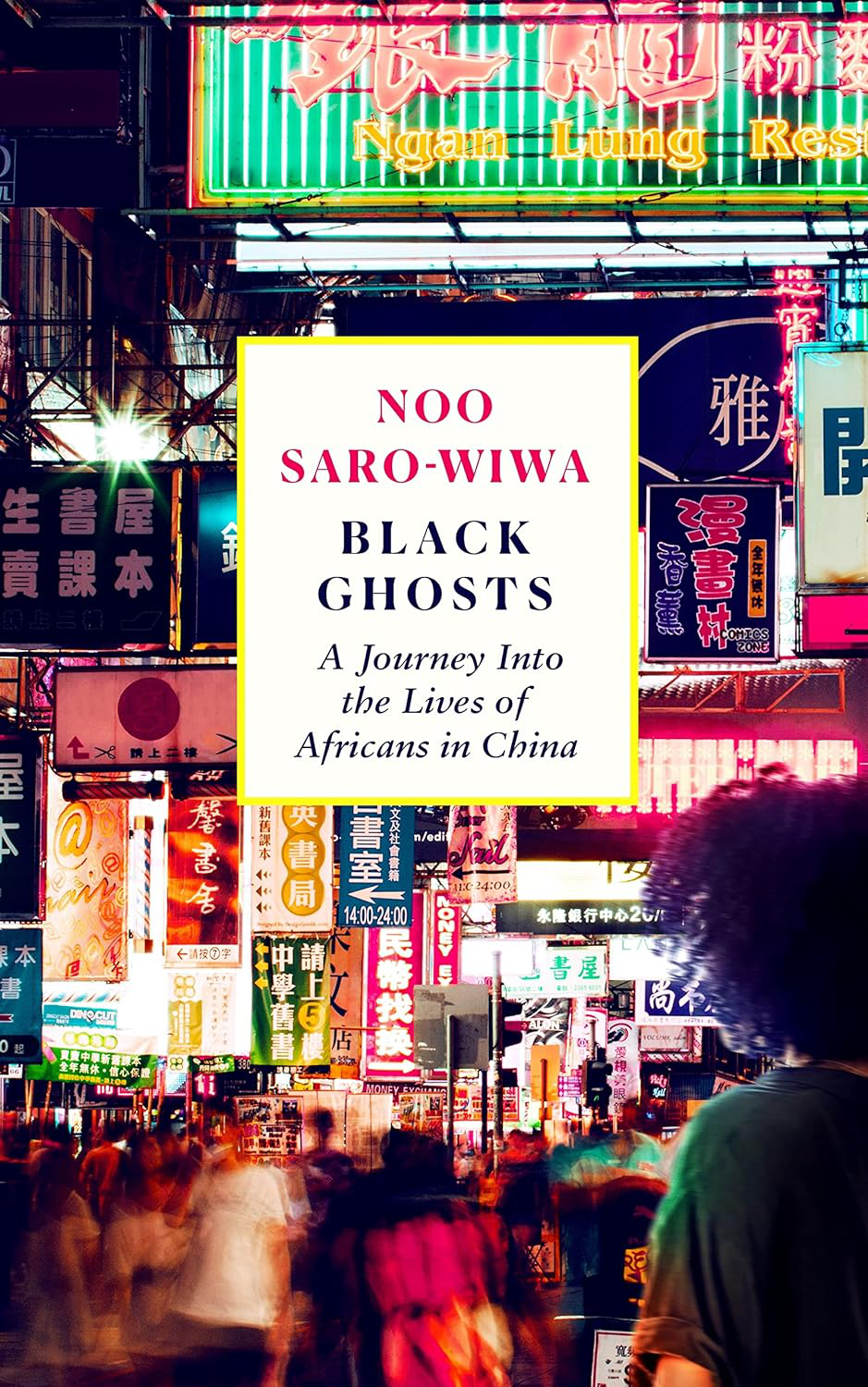
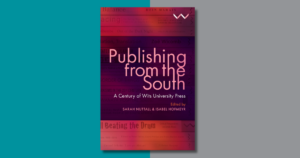
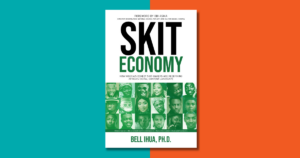
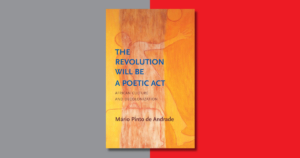
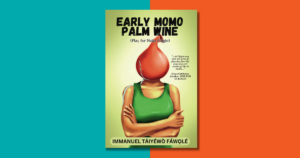
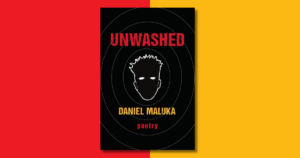
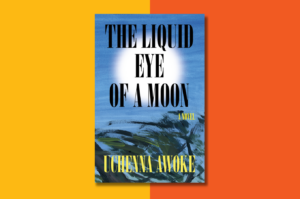

COMMENTS -
Reader Interactions